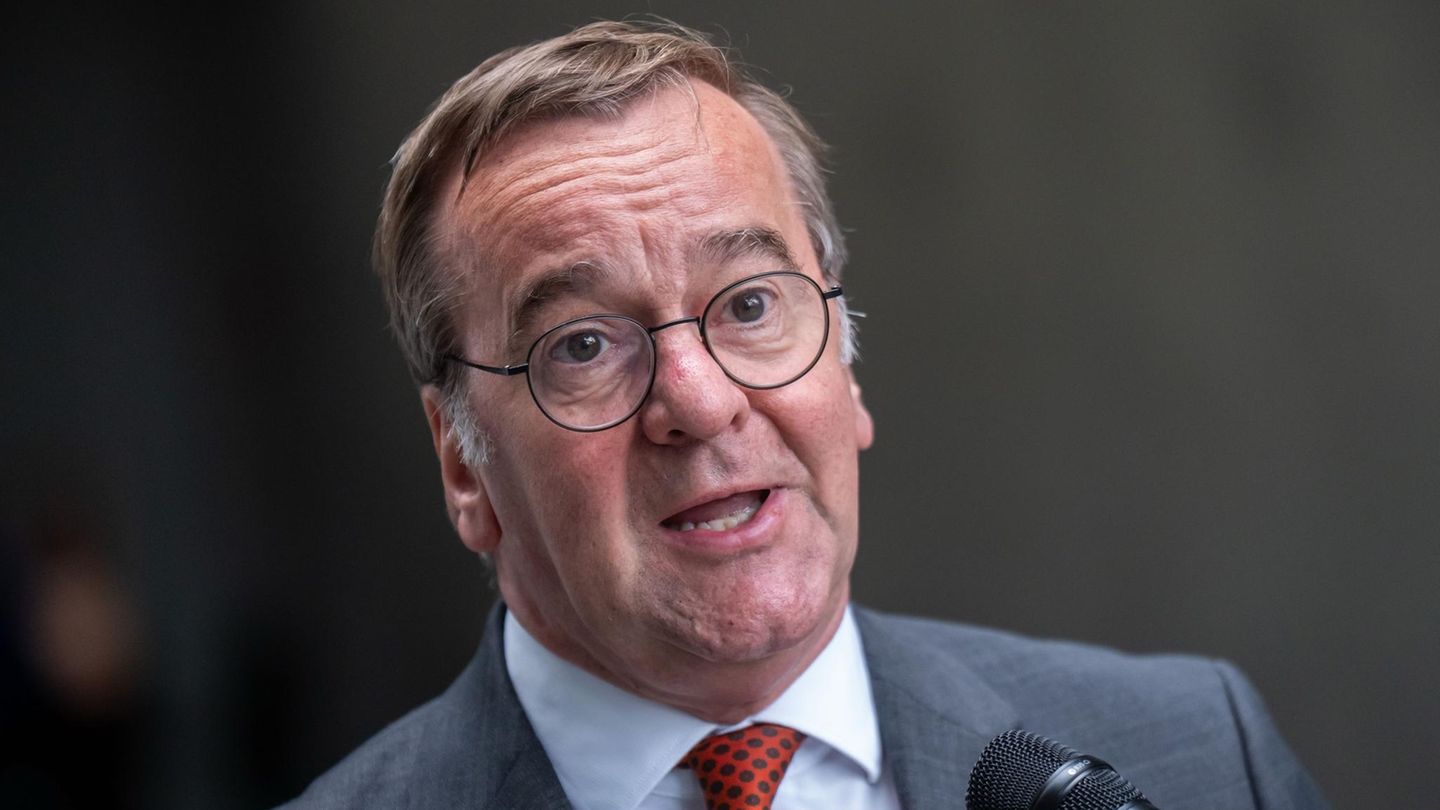Nutrition is also political at the Green Week: Parallel to the large industry trade fair, many are mobilizing for an agricultural turnaround. Ministers from around the world discuss more emphasis on food security.
Several thousand people demonstrated over the weekend at the Green Week agricultural trade fair in Berlin for more animal and climate protection in agriculture. The protest march with the motto “We’re fed up” and 55 tractors led to the Brandenburg Gate on Saturday. The demands were aimed, for example, at the end of giant stables and a stop to the death of insects. Federal Minister of Agriculture Cem Özdemir (Greens) called for more European commitment to long-term food security in Africa. You have to get away from “crisis hopping”. “Build grain silos instead of sending grain sacks – that’s what it’s all about,” he said after a conference with international counterparts in Berlin.
At the demo, banners and signs said: “Protect insects” or “Kill the agricultural industry!” A pig figure that was dragged across the street read: “Factory farming doesn’t need a pig.” According to the organizers, around 10,000 people took part. The police spoke of a good 7,000 men and women. The demonstration was peaceful. Farmers also handed a note of protest to Özdemir, who walked out of the conference for it.
The “We’ve had enough” initiative called for “fair” producer prices and social benefits that make ecological consumption possible. More land should be used for growing human food instead of fodder. The demo has been running for Green Week for years. After a two-year Corona break, around 1400 exhibitors will present themselves there until January 29th.
Özdemir pleased about similarities
Özdemir called it “a good sign” that many of the demands of the demonstration coincided with the declaration of the agriculture ministers, who were meeting in Berlin at the same time. In a statement, the government representatives from 64 countries underlined the goal of stepping up the fight against hunger in the aggravated situation caused by the Ukraine war. For the globally agreed goal of ending world hunger by 2030, there are only eight harvests left. Agriculture can only successfully contribute to food security if it preserves the planet at the same time.
Özdemir emphasized that Germany and the EU must finally be more present in the fight against hunger in Africa. “We must not leave the field to the authoritarian states that are active there and are trying to create new dependencies through their investments.” To this end, the Federal Government agreed a “partnership for the future” with the African Union in order to make food systems more crisis-proof.
The Executive Committee of the German Farmers’ Association passes a resolution according to which Germany and the EU, as locations with good growing conditions, are jointly responsible for supplying the world with food. Challenges such as climate change and the preservation of biodiversity must be combined with high-quality and sustainable food production, as announced on Sunday.
Özdemir, on the other hand, emphasized on Saturday that knowledge transfer is key. Know-how about crop protection belongs in Africa and “not primarily in the corporate headquarters, which of course want to earn money with it”. In order to avoid post-harvest losses of up to 50 percent, storage facilities, logistics and processing capacities are needed. Özdemir also criticized the European course. One has to ask oneself whether agricultural exports intensify crises and promote dependencies – by destroying prospects for African markets for poultry and milk, for example.
In a video message at the conference, Ukrainian President Volodymyr Zelenskyy emphasized that his country wanted to continue providing food to the world despite the Russian war of aggression. Despite Russian rocket attacks on the infrastructure and brutal fighting in regions that are extremely important for agriculture, the farmers continued to till the fields. He complained that Russian representatives continued to obstruct exports by ship.
Source: Stern
Jane Stock is a technology author, who has written for 24 Hours World. She writes about the latest in technology news and trends, and is always on the lookout for new and innovative ways to improve his audience’s experience.




